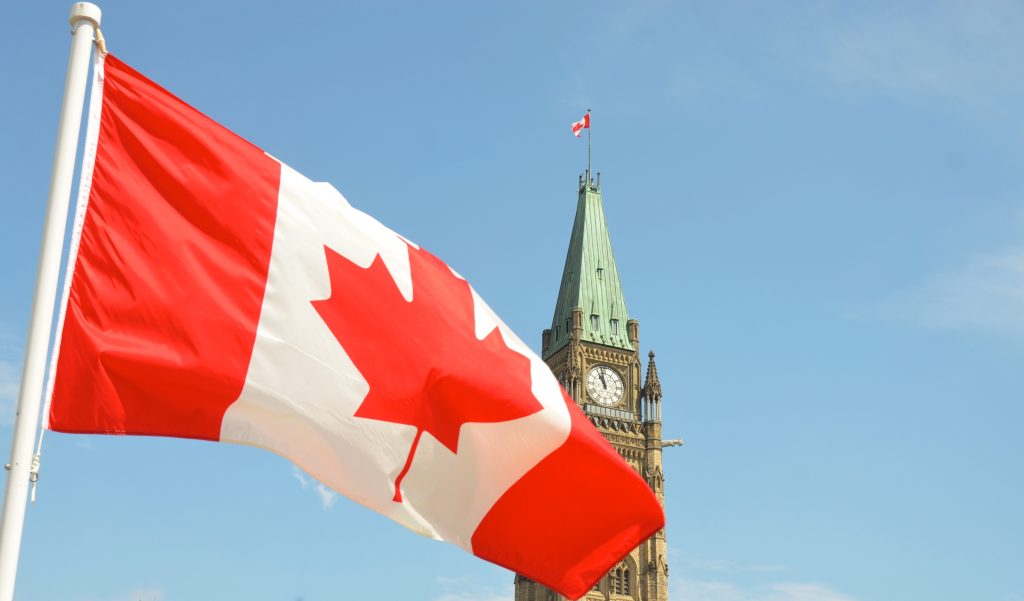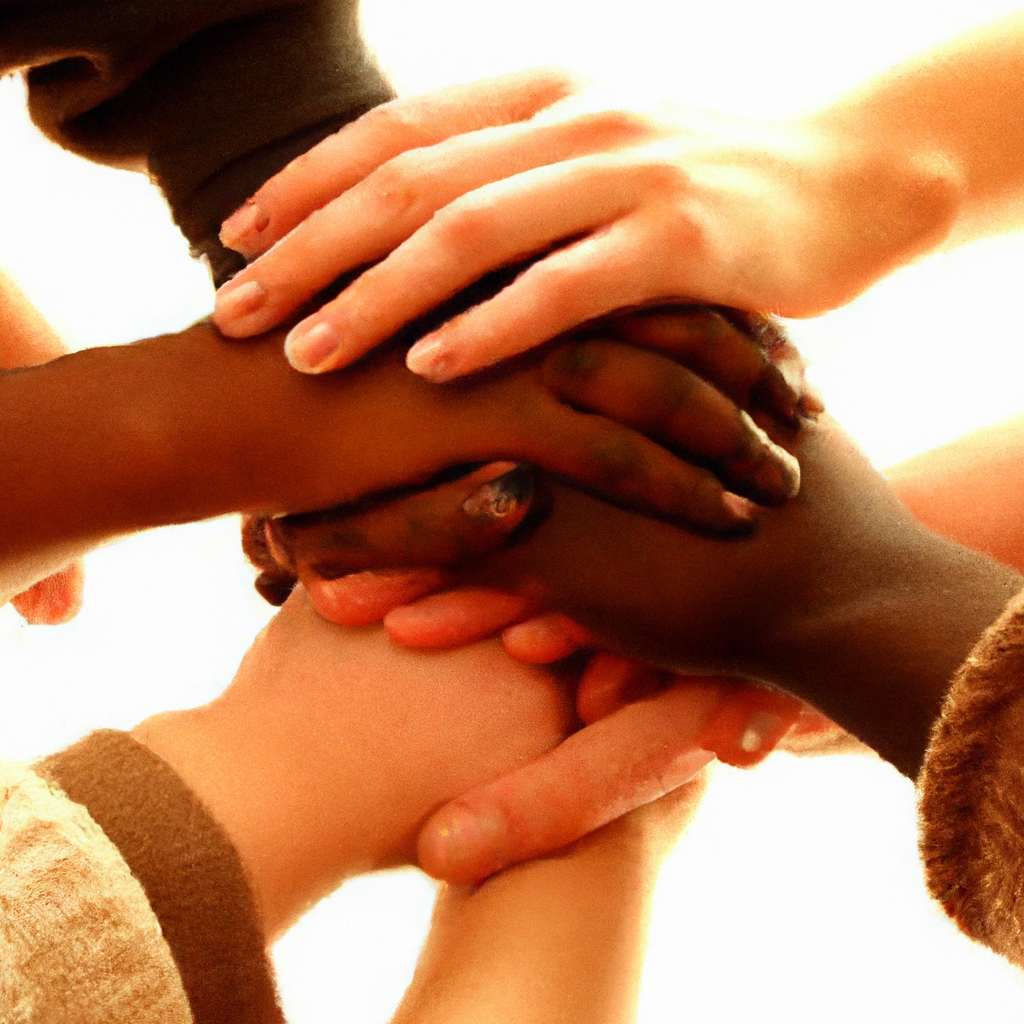Moving to a new country can be an exciting and challenging experience, especially when it comes to adjusting to a different culture. For newcomers to Canada, understanding and navigating cultural considerations is crucial in order to successfully integrate into their new environment. From language barriers to unfamiliar customs, this article explores the importance of cultural awareness and provides useful tips to help newcomers feel more at home in their new Canadian community.

Overview of Cultural Considerations for Newcomers to Canada
Definition of cultural considerations
When it comes to becoming a newcomer in Canada, there are several cultural considerations that are important to understand. Cultural considerations refer to the values, norms, behaviors, and traditions that are specific to a particular culture or community. In the case of newcomers to Canada, it involves understanding and adapting to the cultural nuances and expectations of Canadian society. These considerations are essential for building positive relationships, fostering integration, and ensuring a smooth transition into Canadian life.
Importance of cultural considerations for newcomers
Cultural considerations are crucial for newcomers to Canada as they play a significant role in helping them integrate into their new environment and society. Understanding Canadian culture and its values allows newcomers to effectively communicate and engage with Canadian people, enhancing their social interactions and opportunities. By embracing cultural considerations, newcomers can also avoid misunderstandings, stereotypes, and biases that may arise due to cultural differences. Furthermore, by respecting and embracing Canadian cultural norms, newcomers can establish a sense of belonging and contribute positively to their new communities.
Canadian Multiculturalism
Brief explanation of Canadian multiculturalism
One of Canada’s defining features is its commitment to multiculturalism. Canadian multiculturalism refers to a policy that recognizes and celebrates the diversity of cultures, religions, and languages within the country. It promotes equal opportunities for all individuals, regardless of their cultural background, and aims to create an inclusive and harmonious society.
Acceptance of diverse cultures
Canada takes pride in its acceptance of diverse cultures. The country embraces the idea that no culture is superior to another and that every culture has a valuable contribution to make. Canadians are generally open-minded and tolerant, welcoming newcomers from various cultural backgrounds with warmth and respect. This acceptance of diversity creates a multicultural environment where individuals can express their cultural heritage proudly while being part of the broader Canadian society.
Official languages in Canada
Canada is officially a bilingual country, with English and French recognized as its two official languages. English is the most commonly spoken language, especially in regions outside of the province of Quebec. French, on the other hand, is prevalent in Quebec and parts of Eastern Canada. Being familiar with either or both of these languages greatly facilitates communication and integration into Canadian society. However, it’s important to note that Canada is home to numerous other languages and dialects due to its multicultural nature.
Cultural Traits and Values in Canada
Respect for diversity
Respect for diversity is a fundamental value in Canadian society. Canadians pride themselves on their acceptance and embrace of different cultural backgrounds, ethnicities, and religions. This value translates into a society where individuals are encouraged to be tolerant, understanding, and open-minded. Newcomers to Canada should embrace this value by respecting and appreciating the various cultures and traditions they encounter, fostering a harmonious multicultural society.
Social etiquette and politeness
Etiquette and politeness play a significant role in Canadian culture. Canadians are known for their courteousness, politeness, and general consideration for others. It is common to hear Canadians say “please” and “thank you” in everyday interactions, and holding doors open for others is considered a polite gesture. As a newcomer, adopting these social norms will help you navigate social situations smoothly and positively contribute to the friendly Canadian atmosphere.
Importance of punctuality
Punctuality is highly valued in Canadian culture. Being on time for appointments, meetings, and social gatherings is considered respectful and demonstrates reliability. Canadians appreciate when others respect their time and expect the same in return. It is advisable for newcomers to prioritize punctuality in order to establish trust and positive relationships within their new communities.
Personal space and physical contact
Canadians generally value personal space and tend to maintain a comfortable physical distance when interacting with others. It is important to be mindful of personal boundaries and avoid invading someone’s personal space, especially during conversations or interactions. Physical contact, such as hugging or touching, is typically reserved for close friends and family. Always be attentive to the comfort level and cultural norms of those around you.
Gender equality
Canada prides itself on promoting gender equality and ensuring equal rights and opportunities for all individuals, regardless of their gender. Women have equal access to education, employment, and political involvement. Respect for gender equality is a fundamental aspect of Canadian culture, and newcomers should embrace these values and treat individuals with fairness and respect, regardless of gender.
Importance of individualism
Individualism is highly valued in Canadian society. Canadians embrace personal freedoms, individual aspirations, and the concept of self-determination. The ability to express oneself, pursue individual goals, and make independent decisions are greatly encouraged. Newcomers should understand and respect the importance of individualism while also contributing to the collective well-being of their new communities.
Sense of humor in Canada
Canadians are known for their sense of humor, which often includes self-deprecating jokes, irony, and sarcasm. Humor is an important aspect of Canadian culture and can be a great way to bond with others. However, it is important to be mindful of cultural differences and sensitive topics when using humor, as what may be considered funny or acceptable in one culture might not be well-received in another.
Language and Communication
Official languages – English and French
As mentioned earlier, English and French are the official languages of Canada. English is widely spoken and understood throughout the country, while French holds official status in Quebec and parts of Eastern Canada. Having proficiency in either or both of these languages is highly beneficial for newcomers, as it facilitates communication, job opportunities, and integration into Canadian society.
Importance of language proficiency
Language proficiency is essential for newcomers to Canada, as it plays a vital role in both personal and professional aspects of life. Strong language skills enable effective communication, enhance social interactions, and open doors for employment and educational opportunities. It is advisable for newcomers to invest time and effort in learning and improving their language skills to maximize their potential for success in Canada.
Challenges with language barriers
Language barriers can pose challenges for newcomers, especially if they are not yet proficient in English or French. Limited language skills may lead to misunderstandings, difficulties in accessing services, and feelings of isolation. It is important to seek language assistance programs, take language classes, and actively practice speaking and listening skills to overcome these barriers and integrate effectively into Canadian society.
Slang and colloquial expressions
Beyond the official languages, Canadians also use a variety of slang and colloquial expressions in their everyday conversations. These informal terms can vary by region and may not be familiar to newcomers. However, by immersing oneself in the local culture, engaging in conversations with locals, and keeping an open mind, newcomers can quickly adapt to and understand the slang and colloquial expressions used in their respective communities.

Cultural and Religious Celebrations
Various cultural and religious celebrations in Canada
Canada is a tapestry of diverse cultural and religious celebrations that reflect its multiculturalism. From Lunar New Year and Diwali to Eid and Hanukkah, Canadians celebrate a wide range of festivities throughout the year. These celebrations provide opportunities not only for communities to come together and express their cultural heritage but also for newcomers to learn about different traditions and participate in multicultural events.
National holidays
In addition to cultural and religious celebrations, Canada also observes national holidays that hold significance for all Canadians. These include Canada Day on July 1st, Thanksgiving, Victoria Day, and Remembrance Day, among others. Embracing and participating in these national holidays allows newcomers to feel a sense of belonging and connect with their fellow Canadians in celebrating the country’s history, values, and accomplishments.
Significance of multicultural festivals
Multicultural festivals are a vibrant and integral part of Canadian culture. These festivals showcase the diversity of cultures and provide opportunities for newcomers to experience and appreciate different traditions, music, dance, and cuisines. Events like Caribana in Toronto, Calgary Stampede, and Winterlude in Ottawa are just a few examples of the numerous multicultural festivals celebrated across the country. Participating in these festivals not only fosters cultural understanding but also encourages social connections and community engagement.
Education and Workplace Culture
Canadian education system
The Canadian education system is highly regarded worldwide for its quality and emphasis on inclusivity. From elementary school to university, education in Canada focuses on providing equal opportunities for all students to succeed. The system promotes critical thinking, creativity, and individual growth, preparing students for future careers and personal development. Newcomers have access to a range of educational opportunities and should take advantage of them to enhance their skills and integrate into Canadian society.
Importance of education in Canadian society
Education is highly valued in Canadian society, with a strong emphasis on lifelong learning. Obtaining a quality education is seen as a pathway to personal and professional success, opening doors to employment opportunities and social advancement. Newcomers should recognize the importance of education in Canada and actively seek educational opportunities to increase their knowledge, skills, and chances for success in their new home.
Workplace culture and norms
Canadian workplace culture is characterized by professionalism, respect, and teamwork. Employers prioritize equal treatment, diversity, and inclusivity. It is important for newcomers to understand and adapt to Canadian workplace norms, which typically include punctuality, maintaining a positive attitude, respecting colleagues’ opinions, and actively participating in team dynamics. By demonstrating professionalism and embracing the values of the Canadian workplace, newcomers can integrate effectively and succeed in their chosen careers.
Professionalism and punctuality
Professionalism and punctuality are highly valued in Canadian workplaces. Being punctual for work, meetings, and appointments demonstrates reliability and respect for colleagues’ time. Maintaining a professional demeanor, including dressing appropriately and adhering to workplace policies, contributes to a positive work environment. Newcomers should strive to embody these qualities to establish themselves as reliable and dedicated employees.
Equal employment opportunities
Canada is committed to providing equal employment opportunities for all individuals, regardless of their cultural background, ethnicity, or gender. Laws and regulations prohibit discrimination and promote diversity and inclusivity in the workplace. Newcomers should be aware of their rights, utilize career resources, and actively seek job opportunities to access these equal employment opportunities.

Healthcare and Social Services
Overview of the Canadian healthcare system
The Canadian healthcare system is publicly funded and provides access to essential medical services to all residents. It is known for its universal healthcare coverage, which ensures that individuals receive necessary medical treatment regardless of their ability to pay. The system includes primary care physicians, specialists, hospitals, and various healthcare services and programs. Newcomers should familiarize themselves with the healthcare system, including registering for a provincial health card and understanding how to access healthcare services.
Accessing healthcare and social services
Accessing healthcare and social services in Canada may be different from what newcomers are accustomed to in their home countries. It is important for newcomers to understand the process of accessing healthcare services, such as finding a family doctor or visiting walk-in clinics when necessary. Familiarizing oneself with the social services available, such as shelters, language assistance programs, and settlement agencies, can also provide essential support during the transition to a new country.
Importance of health insurance
While Canada’s healthcare system covers most medical services, it is crucial for newcomers to obtain health insurance to ensure comprehensive coverage. This is especially important during the waiting period for provincial health coverage, which varies depending on the province of residence. Private health insurance can provide additional coverage, including prescription medications, dental care, and vision care. It is recommended that newcomers research and secure appropriate health insurance to protect themselves and their families.
Acculturation and Integration
Process of acculturation
Acculturation refers to the process of adapting to a new culture and integrating into a new society. For newcomers to Canada, acculturation involves learning and embracing the Canadian way of life while maintaining and celebrating their own cultural identity. It is a two-way process that requires openness, curiosity, and a willingness to understand and appreciate both the similarities and differences between one’s own culture and Canadian culture.
Challenges and adaptation
Acculturation can present challenges for newcomers, including language barriers, cultural differences, and feelings of homesickness. It is normal to experience a period of adjustment as one navigates the complexities of a new environment. However, by seeking support from family, friends, and community resources, newcomers can overcome these challenges and adapt successfully to their new home. Creating a balance between maintaining one’s cultural identity and embracing Canadian culture is key to a positive acculturation experience.
Supportive resources for newcomers
Canada offers numerous supportive resources for newcomers to facilitate their integration and foster a sense of belonging. Settlement agencies, community centers, and cultural associations provide assistance with language learning, job searches, housing, and networking opportunities. It is essential for newcomers to actively seek these resources, connect with their communities, and engage in programs and services that can support their acculturation process.

Cultural Sensitivity and Sensible Behaviors
Understanding cultural sensitivity
Cultural sensitivity refers to being aware of and respecting the customs, traditions, and values of different cultures. It involves treating individuals from diverse backgrounds with empathy, understanding, and fairness. By being culturally sensitive, newcomers can foster positive relationships, reduce misunderstandings, and contribute to a harmonious and inclusive society.
Avoiding stereotypes and prejudices
To promote cultural sensitivity, it is important to avoid stereotypes and prejudices. Stereotypes are generalized assumptions about a particular group, while prejudices involve preconceived judgments and biases. By recognizing that individuals are unique and should not be judged based on cultural stereotypes, newcomers can foster an environment of acceptance and understanding.
Respecting cultural differences
Respecting cultural differences is a fundamental aspect of cultural sensitivity. Recognizing that different cultures have different customs, beliefs, and values allows newcomers to navigate interactions with tolerance and respect. Taking the time to understand and appreciate these differences can lead to meaningful cross-cultural friendships and collaborations.
Adopting sensible behaviors
Adopting sensible behaviors entails being mindful of cultural norms and adapting one’s actions and behaviors accordingly. This includes being aware of appropriate attire for different settings, understanding acceptable social protocols, and showing respect for religious practices and customs. By engaging in sensible behaviors, newcomers can demonstrate their cultural sensitivity and create positive impressions in their new communities.
Community Engagement and Networks
Importance of community engagement
Community engagement is vital for newcomers to connect, build relationships, and feel a sense of belonging in their new surroundings. Engaging with the local community provides opportunities to learn, share experiences, and develop mutual support networks. Volunteering, attending social events, and joining community organizations are excellent ways for newcomers to immerse themselves in their new communities and establish meaningful connections.
Joining cultural and social groups
Joining cultural and social groups specific to one’s own background or interests is an excellent way for newcomers to connect with others who share similar experiences and cultural backgrounds. These groups often organize events, activities, and workshops that allow for cultural expression and provide opportunities for socialization. Joining such groups or organizations can provide a sense of familiarity and support, easing the transition into Canadian society.
Networking opportunities for newcomers
Networking is a valuable tool for newcomers to explore career opportunities, make professional connections, and expand their social circles. Attending networking events, industry conferences, and workshops can provide valuable insights and contacts within various fields. Building a network of contacts and mentors can greatly enhance newcomers’ integration and facilitate their professional and personal development.
In conclusion, understanding and embracing cultural considerations are essential for newcomers to Canada. By recognizing and appreciating the cultural traits, values, and norms of Canadian society, newcomers can foster positive relationships, facilitate integration, and contribute to their new communities. From respecting diversity to adapting to Canadian workplace culture, newcomers have a range of cultural considerations to navigate. By actively engaging with the local community, seeking support from available resources, and maintaining a culturally sensitive and sensible approach, newcomers can thrive and create fulfilling lives in their new home.

